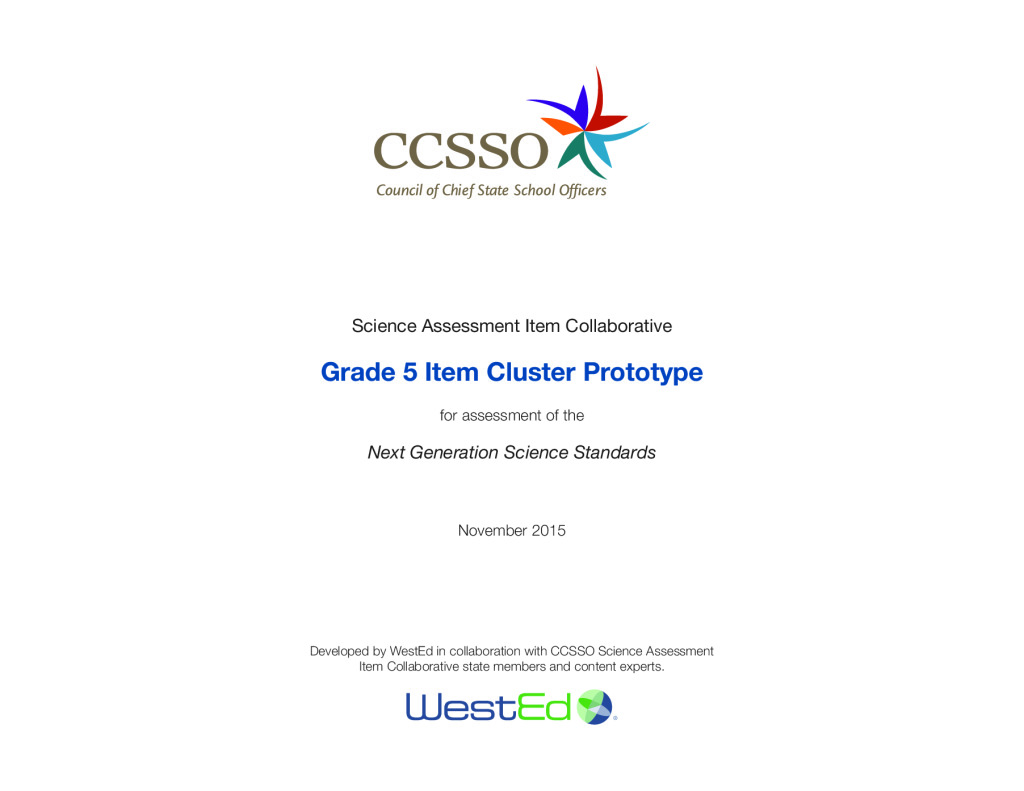Resource Hub
Explore guides, research papers, policy briefs, and tools to aid decisions on standards and assessments.
Science Assessment Item Collaborative Grade 5 and Grade 12 Item Cluster Prototypes
The Grade 5 and Grade 12 Item Cluster Prototypes follow the principles and recommendations set forth in the SAIC Assessment Framework and Item Specifications Guidelines for an NGSS-aligned large-scale summative assessment item cluster. The prototypes serve as initial models for measuring the three-dimensional science learning called for in the NGSS and should promote ongoing dialogue about the vision for a truly next-generation science assessment.
The Grade 5 item cluster can now be previewed live with interactive items and media.

